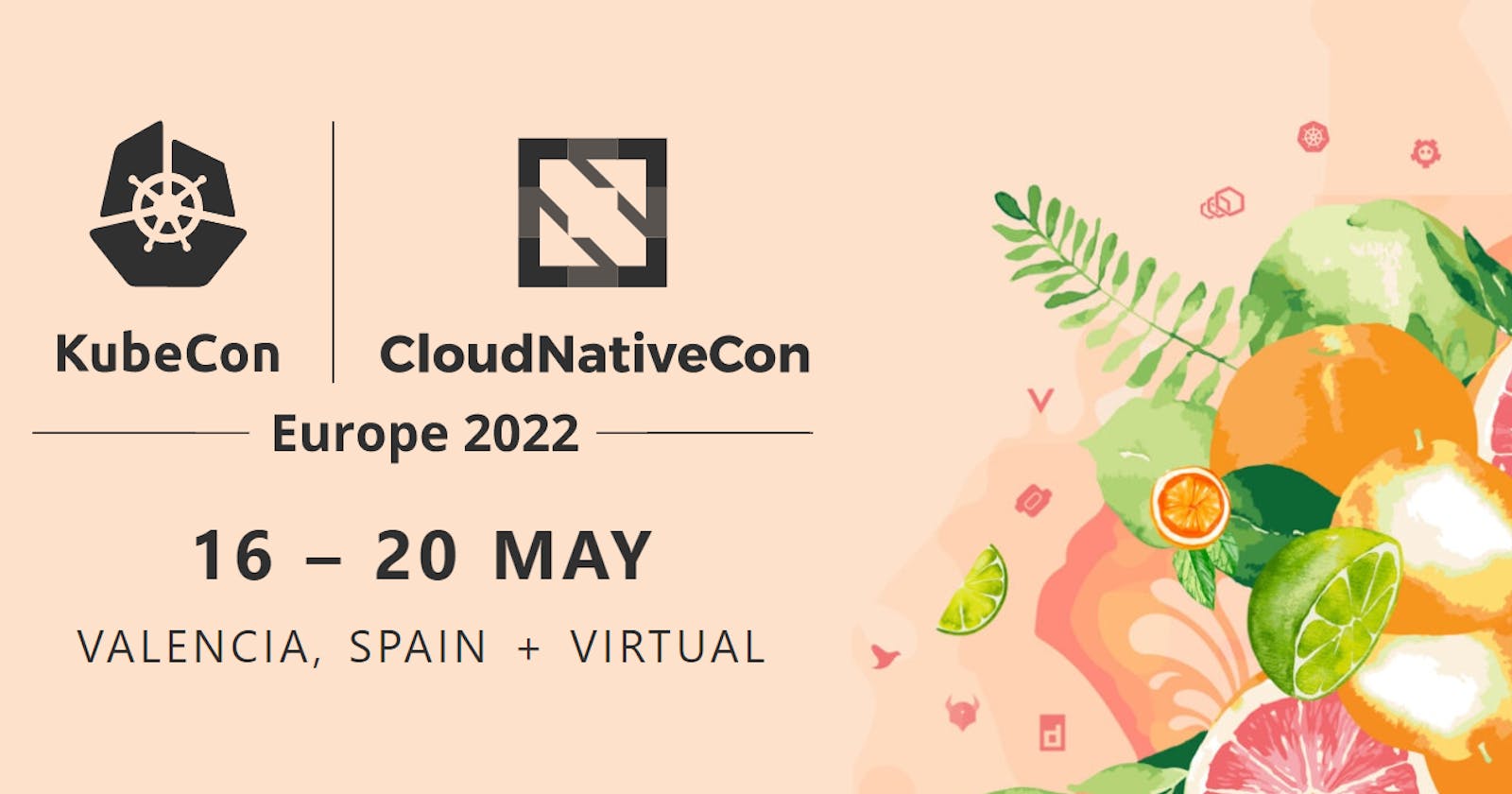My First KubeCon Experience - KubeCon+CloudNativeCon EU 2022
KubeCon Experience and My Favorite Talk of the Conference
Table of contents
- How did I come across KubeCon?
- What is KubeCon?
- Who can attend?
- Where to start?
- My Experience
- Favorite Talk of the Conference
- Navigating the CNCF Landscape, the Right Way
- What is Cloud Native?
- What is CNCF? Why was it required?
- What are the different types of projects?
- What is the CNCF Landscape?
- What is a CNCF card, and what can we infer from it?
- How to Navigate the Landscape?
- How to choose a project when we stumble on a problem for the ecosystem?
- What are some CNCF terminology that people starting out should be familiar with?
- What are the possible areas for contributions?
- Would I recommend someone to attend?
- Conclusion
- References
Hey Everyone! Welcome to my blog. This is my first blog which is about my first ever KubeCon Experience. I attended KubeCon+CloudNativeCon Europe 2022 virtually from 16 - 20 May. In this blog, I will share my experience. So let's get started 🚀
How did I come across KubeCon?
I'm a complete newbie to the CloudNative world and DevOps. When I was exploring the CloudNative stuff I came across the video of Kunal Kushwaha, the video is about Introduction to CNCF + Getting Involved - with Priyanka Sharma. Then I saw it and understood about CNCF, KubeCon Scholarships, and more. Fast forward to May 2022, I registered as a Virtual Attendee for the conference.
What is KubeCon?
It is the flagship conference of the Cloud Native Computing Foundation that gathers adopters & technologists from leading open source and cloud native communities for education and advancement of cloud native. It is a 5 days conference in which we have a lot of talks, events, gatherings, parties and many more. It is both an in-person and a virtual conference.
In some technical terms, KubeCon is the de-facto official Kubernetes developer and user conference. For those of you not familiar with Kubernetes (also referred to as k8s), the open-source system automates the deployment, scaling, and management of containerized applications. Think of Kubernetes as plumbing for running enterprise-class software in the cloud.
Who can attend?
It's open to Everyone. Anyone who wants to participate in this event is welcome regardless of anything. This space is so welcoming and there are folks to connect with. Just apply and get the scholarship to attend the conference that's it.
Where to start?
Before the day of the conference, we get the mail regarding the conference details and the website where we can see our dashboard, keynotes, talks, speakers info, some special offers, slack chat, and many more.
My Suggestion is to make sure to filter the talks according to the experience you have. I have filtered the talks based on Beginner, Community & Student related. Then by using Sched you can make your schedules in advance of your talk.
My Experience
I attended the event virtually. Personally, I focussed on the Student Track, as it had really great student-centric talks which are helpful for the students who are getting started in the cloud native world.
If you miss the talks, you can check out the CNCF YouTube Channel Link.
Favorite Talk of the Conference
My favorite talk was Navigating the CNCF Landscape, the Right Way - D. Mohan, S. Raghunathan, K. Kushwaha & S. Pathak. Let's talk about it.
Navigating the CNCF Landscape, the Right Way
In this talk, Kunal Kushwaha & Saiyam Pathak from Civo. Divya Mohan from SUSE and Savitha Raghunathan from Red Hat explained Navigating the CNCF Landscape and more about it. They answered most of the questions that students ask with respect to the challenges they face when they see the landscape.
What is Cloud Native?
Cloud Native is a paradigm that evolved because of the requirement for a vendor agnostic platform for all these benefits that the cloud offers.
This was primarily a requirement not just because of that but it was also because there was a move towards a more declarative approach of deploying, building, and securing your applications. That's where cloud native as a paradigm emerged.
In other terms, Cloud native is the software approach of building, deploying and managing modern applications in cloud computing environments.
What is CNCF? Why was it required?
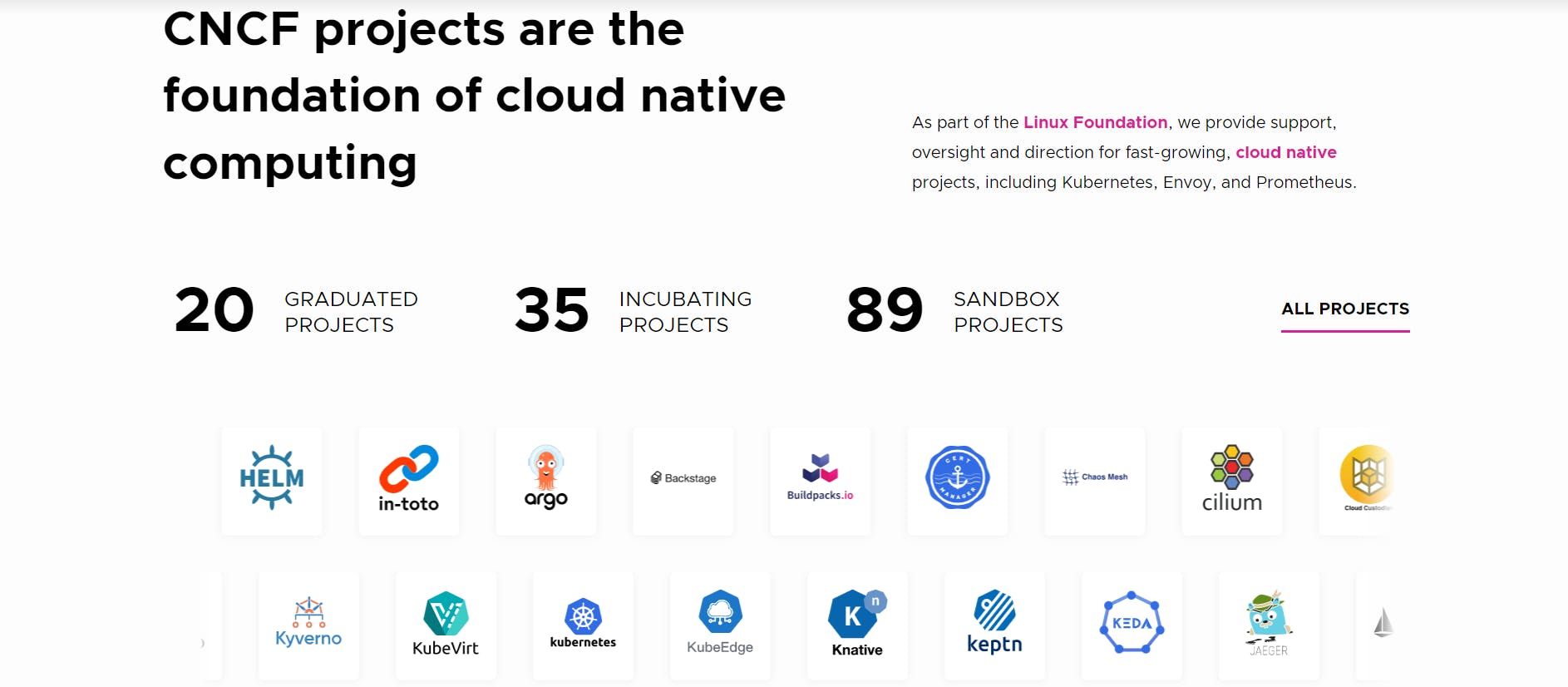
There were many clouds and given the requirement of a vendor agnostic platform, all of the members came together and formed CNCF as an organization under the Linux Foundation for the development and the cloud native paradigm.
The requirement again was the basic leveraging of all the benefits that the various clouds had to offer but in a vendor agnostic way.
What are the different types of projects?

Sandbox: Experimental projects not yet widely tested in production on the bleeding edge of technology.
Incubating: Projects used successfully in production by a small number of users with a healthy pool of contributors.
Graduated: Projects considered stable, widely adopted, and production ready, attracting thousands of contributors.
There is one more type called Archived which means Projects that have reached the end of their lifecycle and have become inactive.
What is the CNCF Landscape?
You can check out Landscape at CNCF Landscape.
The goal of the cloud native landscape is to compile and organize all cloud native open source projects and proprietary products into categories, providing an overview of the current ecosystem. Organizations that have a cloud native project or product can Submit a PR to request it to be added to the landscape.
What is a CNCF card, and what can we infer from it?
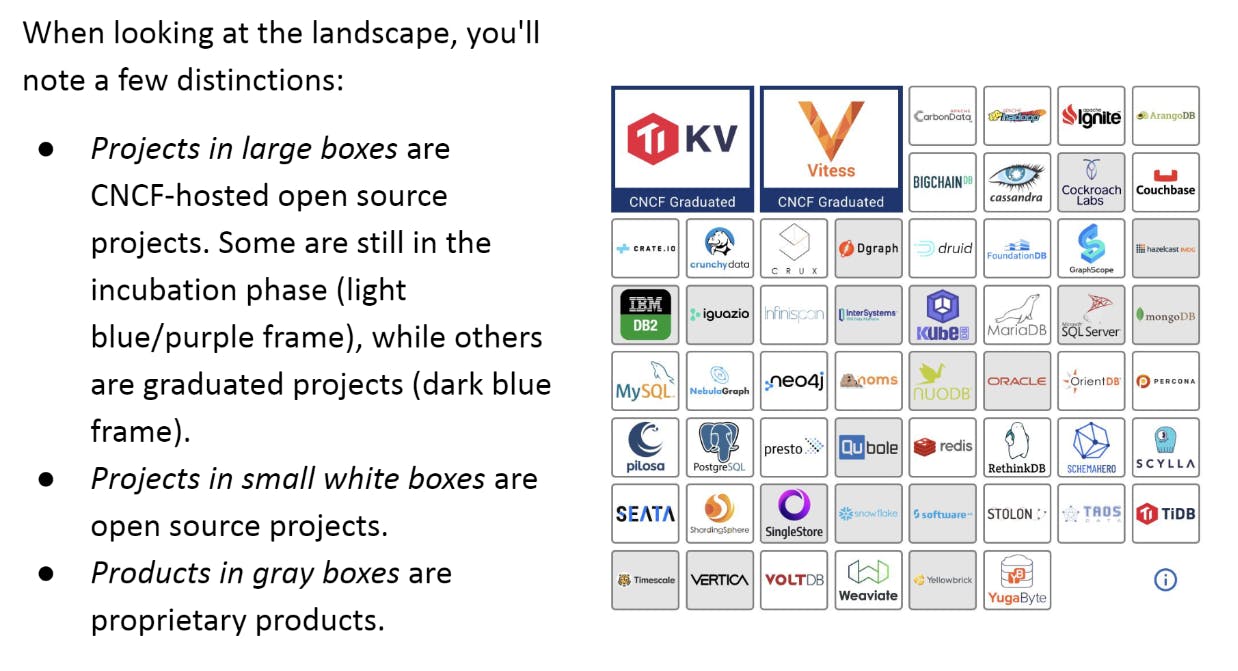
- If we look at a particular card for example Kubernetes.
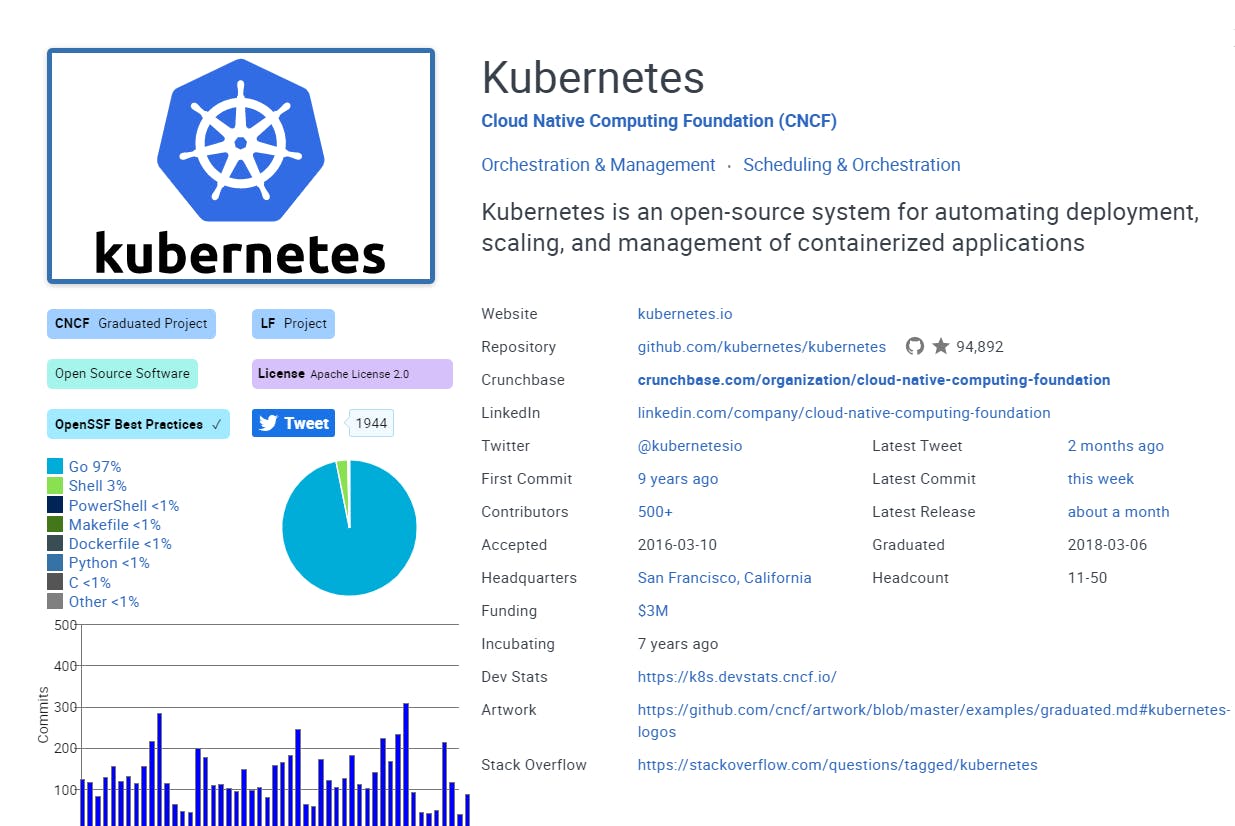
- It has more information about it like project information from GitHub, Funding info from Crunchbase, Market cap, and some of the best practices.
How to Navigate the Landscape?
- When it comes to navigation there are different criteria that we can formalize the landscape into
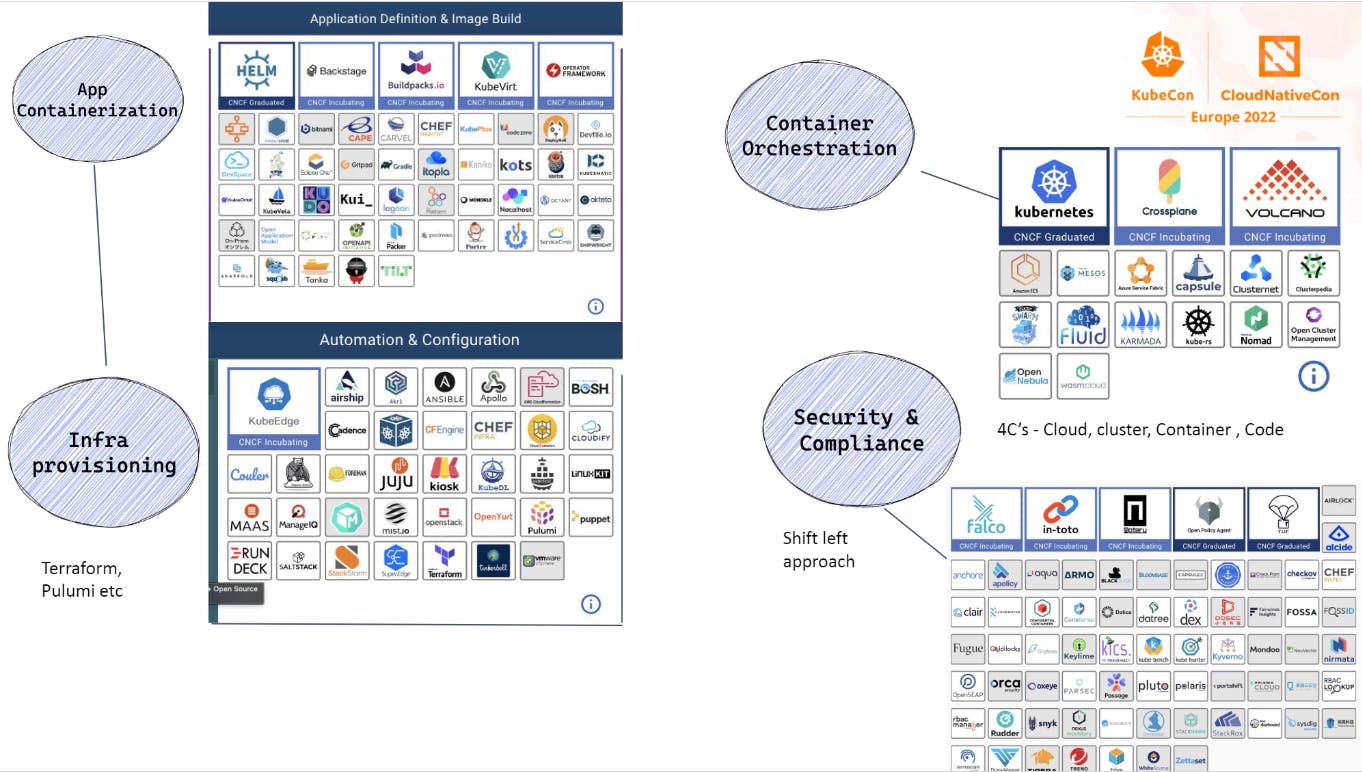
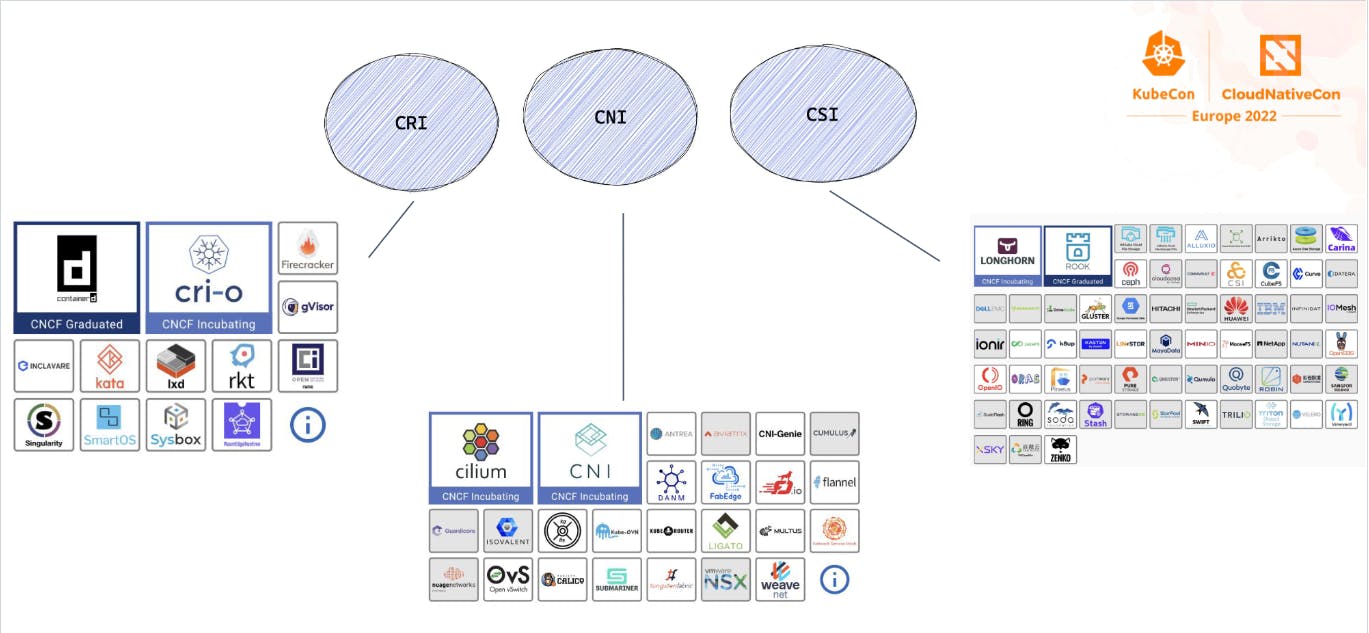
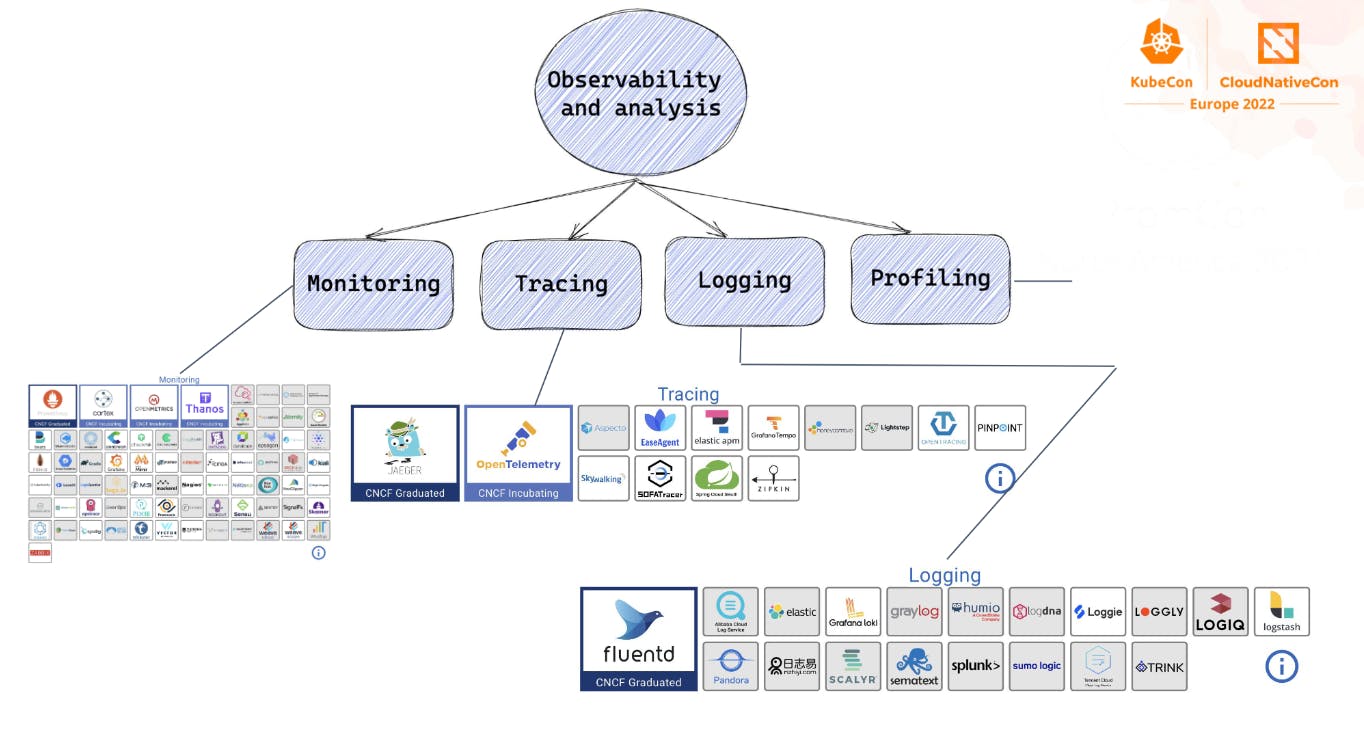
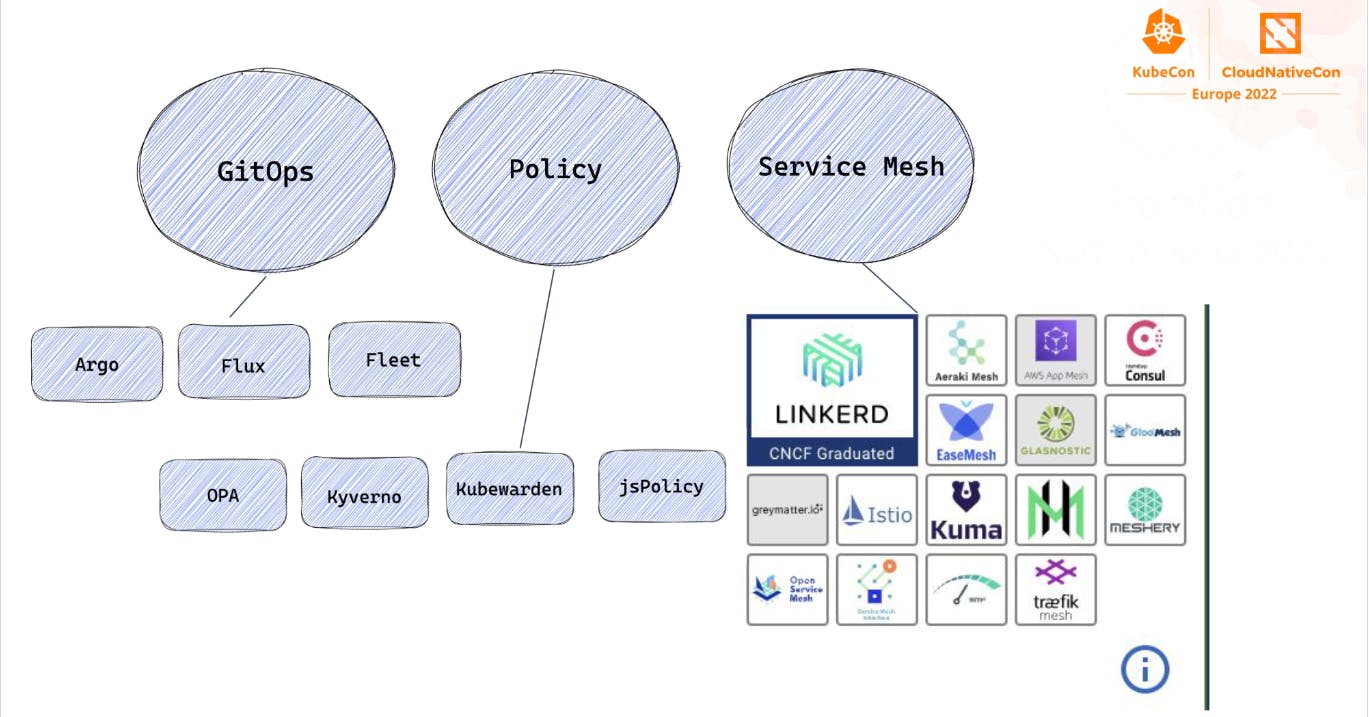
How to choose a project when we stumble on a problem for the ecosystem?
Match your requirements with project specifications.
Think about scaling from the start.
Proof of concepts (POCs) for multiple projects
Worried about migration?
What are some CNCF terminology that people starting out should be familiar with?
CNCF Members: There are members like companies and there are levels like platinum, gold, and so on. Those members are the ones who are taking advantage of these projects and they're building their project on top of it.
End Users: There are 145 organizations that are part of the end user community. They are vendor neutral like a community they are just consuming these projects. They can provide feedback to the CNCF community.
TOC (Technical Oversight Committee): This is responsible for overseeing the technical discussions and having a say when a project can graduate or when a project can get into a sandbox and things like that.
Governing Board: This will be responsible for the business decisions.
Tags: Tags are like Technical Advisory Groups. They are like if you have ever contributed to Kubernetes, so you would have come across the Special Interest Groups (SIGs) so these are analogous to that. They focus on specific sections of the domain and they help the project move from one stage to other.
These are the basic things you need to know before you get started.
What are the possible areas for contributions?
There are two broad ways like the Code part and the Non-Code part of it.
In the code part, you have the entire code base and infrastructure provisioning, and so on. Coming to Non-code contributions they're valuable.
One of the areas that people could get started with if they're at a beginner level start by doing LFX internships because these are structured and time boxed ways to get to know the ecosystem.
You can also contribute to bugs, and features and help with releases.
One more thing is there's an exam called KCNA which will helps you via the way of learning to understand the projects in the ecosystem.
Would I recommend someone to attend?
Definitely, YES! Nothing to think more about it.
Is KubeCon Worth it? - YES.
It has Great Learnings from the talks and the people around the world are really supportive, Networking Opportunities, Giveaways, and Scholarships.

Conclusion
To sum up, it was a fantastic experience for me and I'm grateful that I attended it. The event is more informative and pretty useful for me. I made new connections and learned a lot from the talks and their experiences. I'm hoping to attend this event in person in the future.
I would highly recommend checking out the future events of the Linux Foundation. I have added the link in the references section. If any feedback is much appreciated.
Learn and Explore things. Learn by Doing! 💯
References
Thank you so much for reading. Like | Follow | Subscribe to the newsletter.
Connect with me: https://bio.link/kalyanvurugonda

